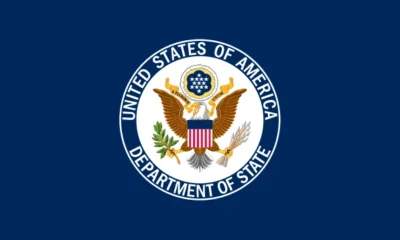Education
BREAKING: WAEC Releases New 2026 Subject Combinations, Bans Economics for Science and Arts Students
WAEC updates 2026 exam structure: Science and Arts students can no longer take Economics as subject combinations change nationwide.

- WAEC updates 2026 exam structure: Science and Arts students can no longer take Economics as subject combinations change nationwide.
The West African Examinations Council (WAEC) has announced new subject combinations for students sitting the 2026 West African Senior School Certificate Examination (WASSCE), according to PM News.
Under the updated structure, Science students will no longer be allowed to register for Economics, while Arts students studying Literature, Government, or History are also barred from taking the subject. Only Business (Commercial) students will now be permitted to include Economics in their exam list.
General Requirements
WAEC maintained that each student must register for a minimum of seven and a maximum of nine subjects, including English Language and Mathematics.

The three compulsory subjects for all categories of students remain:
- English Language
- Mathematics
- Civic Education
Science Students (2026/2027)
Science students will continue to take subjects with both theory and practical components, though schools without standard laboratories can use an approved alternative-to-practical system.
Core subjects:
- English Language
- Mathematics
- Civic Education
- Physics
- Chemistry
- Biology
- Further Mathematics
- Geography
- Agricultural Science
- A Nigerian language (Yoruba, Igbo, or Hausa)
- Technical Drawing
Arts Students (2026/2027)
Arts students will focus on disciplines within languages, social sciences, and humanities.
DON’T MISS: FG Sets New Mandatory Requirements for NYSC Mobilisation and Exemption
Core subjects:
- English Language
- Mathematics
- Civic Education
- Literature in English
- Government or History
- Religious Studies (CRS or IRS)
- A Nigerian language (Yoruba, Igbo, or Hausa)

Optional subject:
- Economics (if permitted under local WAEC guidelines)
Commercial Students (2026/2027)
Commercial students will concentrate on business, management, and finance-related disciplines.
Core subjects:
- English Language
- Mathematics
- Civic Education
- Economics
- Accounting
- Commerce
- Government
- Office Practice
Optional subjects:
- Further Mathematics
- Bookkeeping
- Agricultural Science or Biology
- A Nigerian language
WAEC Trade Subjects (2026/2027)
WAEC also reaffirmed the inclusion of Trade Subjects — designed to equip students with practical and entrepreneurial skills for self-reliance.

Students must take at least one trade subject out of 35 available options, which include:
- Animal Husbandry
- Carpentry and Joinery
- Catering Craft Practice
- Data Processing
- Garment Making
- Photography
- Welding and Fabrication
- GSM Phone Repairs
- Marketing
- Plumbing
- Tourism
- Upholstery
Guidelines for Subject Selection
WAEC advised students to:
- Register for the three compulsory subjects (English, Mathematics, Civic Education).
- Choose one trade subject.
- Pick two to five additional subjects from their respective categories (Science, Arts, or Commercial).
This means each student must register for a minimum of eight and a maximum of nine subjects in total.
Goal of the Reform
WAEC explained that the new 2026 structure aims to streamline academic focus, enhance specialization, and prepare students for future careers or entrepreneurship.

According to education analysts, the change reflects WAEC’s effort to align secondary school learning with modern curriculum reforms in Nigeria and evolving global education standards.
The 2026 subject reform marks one of WAEC’s most significant updates in recent years — a move expected to influence school timetables, curriculum design, and career pathways across Nigeria and West Africa.
Students and parents are advised to consult their school counselors or visit the official WAEC website for detailed subject registration guidelines.























You must be logged in to post a comment Login